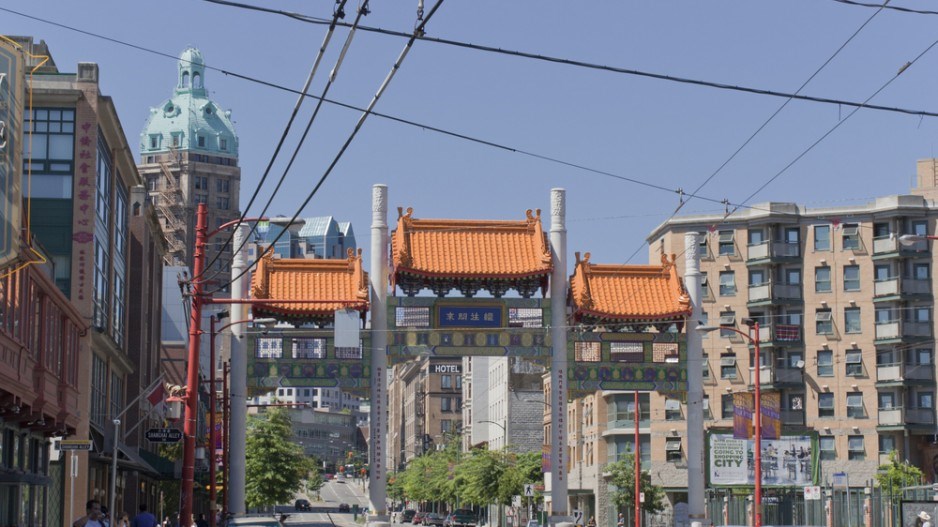Greg D'Avignon says it’s unfortunate that a friend of his enjoys living in Vancouver but finds it necessary to fly to Hong Kong frequently to work at a major accounting firm.
That kind of lifestyle is something the Business Council of B.C. (BCBC) CEO hopes to curb through a new initiative designed to bring Asian companies’ headquarters to Vancouver.
“We have the most Asian-centric population of anywhere in North America,” D’Avignon told Business In Vancouver. “We’re not connecting those relationships and those familial ties as effectively as we should at a personal level, but on a business level as well.”
The HQ Vancouver program – a partnership between the BCBC, Victoria and Ottawa – launched Friday (February 13) and began identifying targets and building business cases for corporate relocations.
Over the next three years, Victoria is contributing $3.4 million, Ottawa is contributing $1.9 million and the BCBC is providing $1.2 million in funding and in-kind support.
HQ Vancouver will focus on natural resources, life sciences, education, transportation, agri-food and other sectors.
Yuen Pau Woo, former Asia Pacific Foundation president and CEO, leads the new organization’s efforts to attract headquarters following decades of erosion.
A 2011 Fraser Institute report calculated Vancouver had two corporate headquarters per 100,000 people as of 2010. That’s a drop from 1990, when there were 2.8 corporate headquarters per 100,000 people.
According to Statistics Canada, B.C. was home to 11.3% of the country’s corporate headquarters in 2012, Alberta had 14.2% and Ontario had 40%.
D’Avignon noted that Montreal, Toronto and Calgary have all been assertive on carving out niches for corporate headquarters for aerospace, financial services and oil and gas companies.
“We [Vancouver] have a more diversified economy, but we haven’t been as assertive on opportunities,” he said, adding that Vancouver’s large port and proximity to Asia and the western U.S. shows there’s a business case for more foreign head offices to set up in B.C.
“We’ve got all these attributes, but we don’t aggressively use them to our advantage and make people aware of what the opportunity is.”
D’Avignon said by attracting more head offices, the rest of the province benefits by building up clusters of small-and-medium enterprises (SMEs) providing services to the Asian companies.
But Vancouver’s high cost of living could prove challenging, according to Boyd Company principal John Boyd. His Princeton, New Jersey, organization specializes in corporate relocations, and for years Boyd has placed Vancouver near the top of the list of cities to be headquartered in.
He said the decline in the loonie offsets some concerns over the high cost of living for foreign companies looking for a more cost effective alternative than California or the Pacific Northwest.
“This is a very, very smart initiative,” he said, “and it’s a very timely initiative. It’s working with several big-picture global trends.”
Boyd added that reduced payroll costs due to universal health care and lower corporate tax rates also play in Vancouver’s favour.
While he admitted Vancouver is far from major financial centres like Toronto or New York City, technology is making that distance much less of a factor when companies consider corporate moves.
Meanwhile, the abundance of non-stop flights between Vancouver and Asia is one example of the city’s location playing in its favour.
While those non-stop flights are very much a signature of the regions’ close cultural connections, D’Avignon wants HQ Vancouver to make business connections just as strong before it’s too late.
“It ties us to the fastest and largest growing economies in the world that we have a natural relationship with.”
[email protected]



